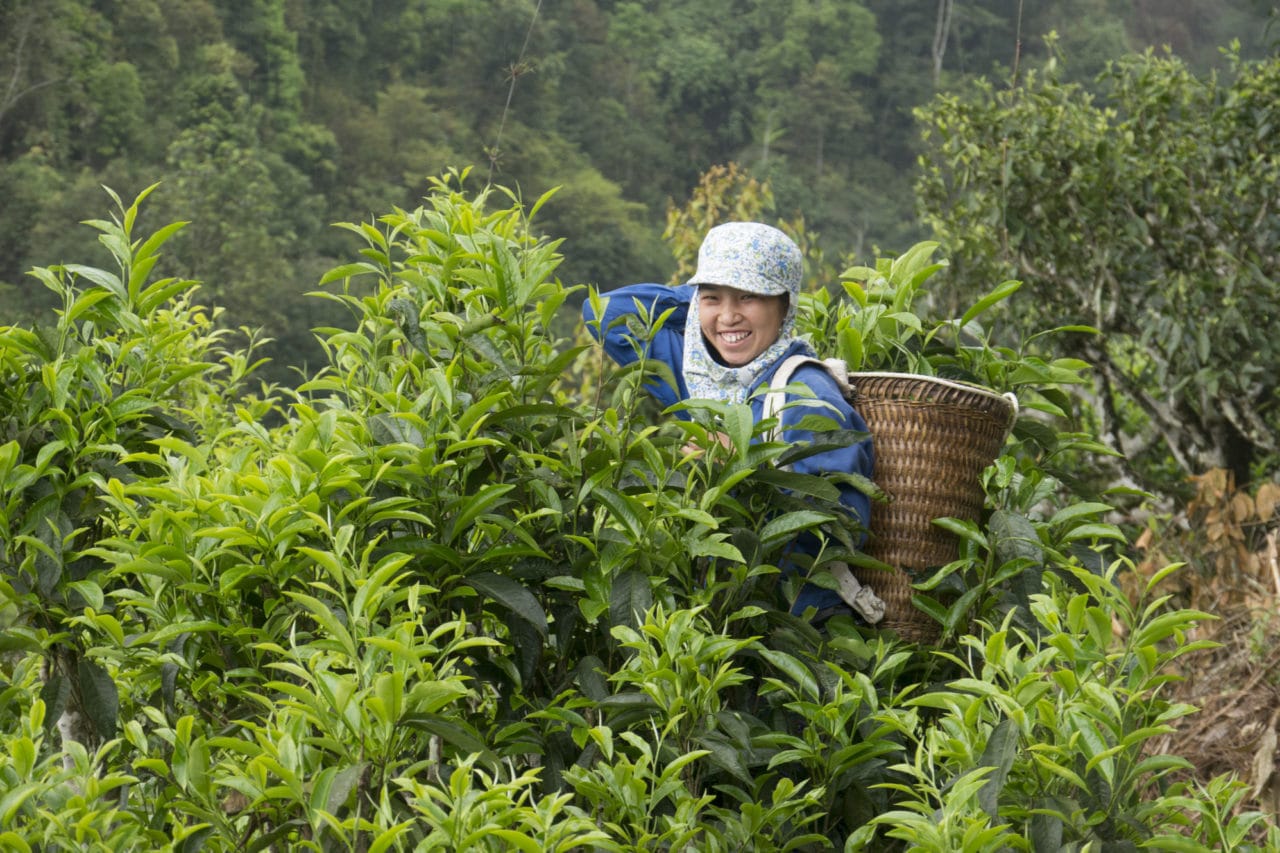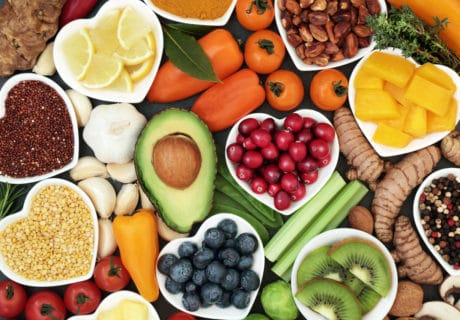UK-based organic herbal tea and supplements specialist Pukka Herbs has become only the 13th company in the UK (Tesco, Marks & Spencer, and Coca Cola European Partners being among the others) to have its climate goal – to be zero carbon by 2030 – validated by the Science Based Targets initiative (SBTi).
Confirmation comes shortly after the Intergovernmental Panel on Climate Change (IPCC) released one of the most critical reports on climate change in recent years.
With a turnover of almost £36 million, the global Bristol-based organization was founded in 2001 by Tim Westwell and Sebastian Pole. Pole’s vision was to create a business that lives in a regenerative way and it has since become one of the fastest growing organic businesses in the world, working with over 5,000 organic growers worldwide and selling its 100% certified organic herbal teas, supplements and lattes in over 40 countries.
While many companies are setting their own carbon reduction targets, only 13 in the UK including Pukka have set independent, rigorously verified targets through the SBTi and while the smallest, it joins UK-based, global organizations such as BT, Capgemini and Diageo PLC in the plight to radically reduce climate change before it’s too late. With global emissions showing few signs of slowing and the humanity failing to hold global warming at moderate levels, ‘unprecedented changes’ are required, says the IPCC.
Following Pukka’s submission to SBTi in March 2018, the announcement of its verified target follows the IPCC report which called for rapid decarbonization of the global economy to prevent the worst impacts of climate change. It was the most stark warning yet on the risks of rising global temperatures, with international scientists claiming it as the final call to save the world from climate catastrophe.
As the first company to develop recyclable tea envelopes and as an early adopter of renewable energy, Pukka has worked with energy performance and carbon management business Carbon Credentials to become the first UK company of its size to commit under its targets to reduce direct (scope 1) and indirect (scope 2) greenhouse gas (GHG) emissions to be zero carbon in its buildings and vehicles by 2030. Pukka has also committed to reducing indirect scope 3 emission in its value chain, which are emissions out of a company’s direct control, by 50% from a 2017 baseline.
Pukka will achieve its science-based targets through actions ranging from engaging with suppliers to tackling the emissions caused from boiling kettles – which have the greatest impact (49%) in Pukka’s value chain. Its ‘Smart Boiling’ campaign will encourage people to adopt some simple practices to make a ‘Pukka cuppa’. Boiling only the amount of water you need and switching to renewable energy are just two of the ways it is highlighting to help boil smarter, saving consumers nearly £1 million a day in electricity by only boiling what’s needed. Pukka also runs its buildings on renewable electricity while in future all its company vehicles will be electric.
 Crop to cup
Crop to cup
With the help of Carbon Credentials, Pukka has mapped out its carbon footprint, breaking down total carbon output from ‘crop to cup’. A complex tea production supply chain, with over 90% of carbon emissions outside its direct control makes this an even more ambitious target. 25% of its carbon footprint is in the growing of its herbs and making its packaging. To address this 25% Pukka has:
- Inspired other companies in its supply chain to switch to renewable energy. For example, Infusion, Pukka’s blending and packing partner, has now switched to renewable energy.
- Is using organic farming methods that reduce emissions and store more carbon in soils.
- Begun working with its most important herb growers to encourage low-carbon farming techniques. Ploughing, for example, releases carbon from the soil into the air, so ploughing less, or not at all, makes carbon sense. While agroforestry has many benefits: better composting and agroforestry help to reduce carbon emissions and help lock more water into the soil, which is important in times of future drought. Trees remove carbon dioxide from the air, roots firm up soil helping to prevent soil erosion, and tree nuts, fruits and bark can often provide a secondary source of income for farmers.
- Running pilot carbon reduction projects in collaboration with suppliers and the communities growing its specific herbs. This includes Pukka investing £45,000 in pilot projects tasked with reducing carbon impact throughout 2019, while it’s now generating more accurate data relating to its specific carbon impact in situ (as well as monitoring carbon reduction over time), via a field-based app.
Commenting on SBTi validation, Pole says: “We knew we wanted to set a science-based target back in November 2015 ahead of the United Nations Climate Change Conference in Paris, COP 21, so we were committing to reductions in line with what climate scientists are telling us needs to happen. Not just what we think is achievable as a business.
“As the recent IPCC report tells us, there is now a small window of opportunity. Keeping temperature rises to within 1.5 degrees is, quite literally for many, the only way to live. This demands serious commitment and bold action from everyone, no matter what size their business. It is no use waiting for governments to take action, businesses have a responsibility to act as a force for good and now.”
Paul Lewis, CEO, Carbon Credentials, adds: “We’re incredibly proud of the work with Pukka to develop such an ambitious target that meets the stringent requirements of the SBTi. We helped to ensure that the business case was clearly articulated to achieve buy-in across the company, developed creative solutions to keep emissions to a minimum whilst maintaining stronger growth, and undertook analysis to help Pukka understand its carbon hot spots.





